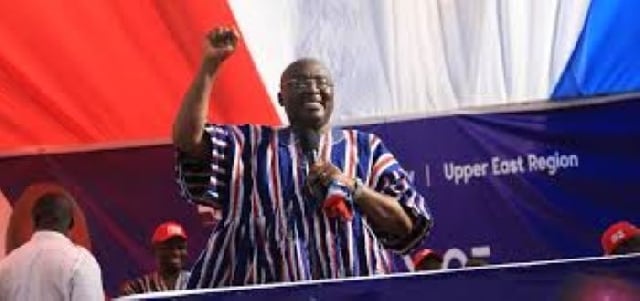The New Patriotic Party (NPP) is gearing up for its 2026 flagbearer race, and a significant contingent of its Members of Parliament (MPs) from the Eastern Region have thrown their weight behind Vice President Dr. Mahamudu Bawumia. Fifteen of the twenty-three NPP MPs in the region have publicly endorsed Bawumia’s candidacy, asserting that he is the best positioned to lead the party to victory in the 2028 general elections. This early and substantial endorsement underscores the growing momentum behind Bawumia’s potential bid and highlights the internal dynamics shaping the future of the NPP. The MPs argue that replacing Bawumia would be detrimental to the party’s progress and could set back both the NPP and the country. They portray Bawumia as a visionary leader whose ideas are gaining traction with the Ghanaian public, suggesting that a change in leadership would interrupt the positive trajectory they believe he has established.
The MPs’ endorsement emphasizes Bawumia’s perceived strengths, including his political experience as Vice President, his policy acumen, and his personal qualities. Kofi Ahenkorah Marfo, MP for Achiase, articulated this perspective by highlighting Bawumia’s impactful tenure as Vice President and his widespread recognition within the political landscape. The MPs believe that Bawumia has been effectively “marketed” to the electorate, making him the most viable candidate to secure the presidency for the NPP. Furthermore, they praise his policy-oriented approach, suggesting he possesses the intellectual capacity and strategic vision to address the nation’s challenges.
Beyond his political and policy credentials, the MPs also underscored Bawumia’s character, emphasizing his humility, inclusiveness, and unifying leadership style. They contrast this with a potential alternative who they imply could be divisive, suggesting that Bawumia’s approach resonates with the desires of the Ghanaian people for a leader who can bridge divides and bring the country together. This portrayal of Bawumia as a unifying figure is strategically significant, as it seeks to present him as a leader capable of transcending partisan lines and appealing to a broader electorate.
The list of endorsing MPs comprises a mix of prominent figures and newer members, reflecting a broad base of support for Bawumia within the Eastern Region’s NPP caucus. This includes MPs like Michael Okyere Baafi, Akwasi Acquah, Sammi Awuku, and Kojo Oppong Nkrumah, all of whom hold significant positions within the party or government. The diversity of the endorsing MPs suggests that Bawumia’s appeal extends across different factions and generations within the party. Their commitment to actively campaign for Bawumia within the Eastern Region further reinforces their dedication to his candidacy and their belief in his ability to mobilize the grassroots.
The early endorsement of Bawumia by these fifteen MPs is a calculated political move with several implications. Firstly, it aims to create a sense of momentum and inevitability around his candidacy, potentially discouraging other aspirants from entering the race. Secondly, it serves as a show of force, demonstrating the breadth of support Bawumia enjoys within a key region for the NPP. Thirdly, it puts pressure on other party members, particularly those with aspirations to lead the party, to declare their intentions and potentially align themselves with Bawumia. This early maneuvering reflects the high stakes involved in the NPP’s internal power dynamics and the importance of securing key endorsements in the lead-up to the flagbearer contest.
The Eastern Region, historically a stronghold for the NPP, holds significant weight within the party, making this endorsement a crucial development in the race for the NPP’s 2026 flagbearer position. While this early support demonstrates Bawumia’s significant standing within the party, the race remains fluid and other potential candidates may emerge. The dynamic nature of internal party politics means that alliances can shift, and the eventual outcome will depend on a variety of factors, including the prevailing political climate, the performance of the current government, and the appeal of alternative candidates. However, this early and strong endorsement from a substantial group of MPs gives Bawumia a considerable advantage as the NPP begins to navigate its path toward the 2028 general elections.














